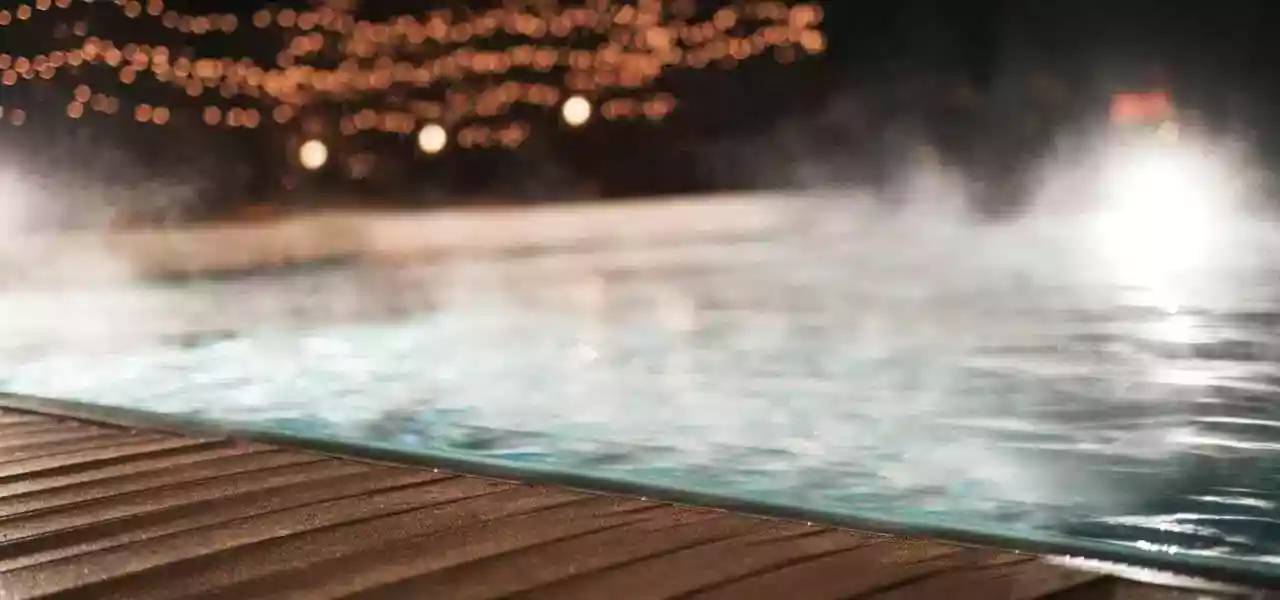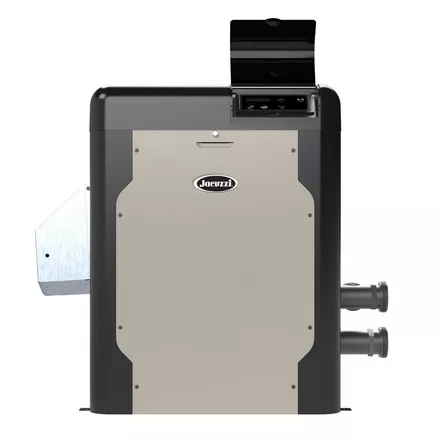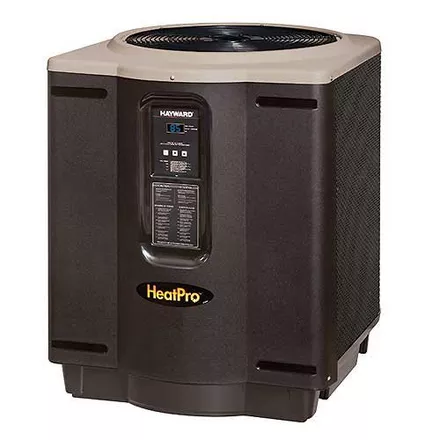FREE Standard Shipping On All Orders $100 or More!*

Pool Heaters: Heat Pumps vs. Gas Heaters
From liquid solar cover to natural gas heaters, there are multiple ways to heat your pool and extend your swim season. But is one method better than all the rest? Well, that answer depends on your budget, warmth preference, and location. In this article, we take a deep dive into the two most common types of pool heaters: gas heaters and electric heat pumps.

Gas Pool Heaters
Pros:
- Fast heating
- Heats in cold temperatures
- Controller compatible
- Cheaper upfront cost
Cons:
- Higher operating costs
- Requires more frequent repairs
- Not suitable for indoor pools
- Not environmentally-friendly
A gas pool heater may be the best choice if:
- You have an attached spa that you want to heat to over 100 degrees
- You plan to heat the pool early in the spring, and late into the fall, or year around.
- Adding a 30-50 amp breaker requires a "Heavy-Up" to your electrical service.
- Your gas meter is located very close to your pool equipment pad.
- You already have a 500 gallon propane tank (LPG) installed on the property.

Electric Heat Pumps
Pros:
- Fast heating
- Low maintenance requirements
- Safe to operate
- Easy installation
Cons:
- Operates at temperatures above 50ºF
- Slower heat up time
- Professional installation required
- Higher upfront cost
A pool heat pump may be the best choice if:
- You want a more eco-friendly pool heater that doesn't emit carbon oxides.
- Your pool is usually closed when daily outside temperatures dip below 60ºF.
- Slow water heat-up is not an issue.
DIY Gas Pool Heater Installation
Both pool heaters, gas or electric, can be mostly installed by the homeowner. For safety reasons, you should hire an electrician for a heat pump, or a gas contractor for a gas pool heater connection. The DIY pool owner can do everything else, including purchasing, placing, and plumbing your pool heater.
Purchasing a Pool Heater:
When sizing pool heaters, take into account the size of the pool in square footage, an estimate of average wind speed, and whether you will use a pool cover. It also looks at what your optimum temperature rise will be, or how much heat do you need? 10ºF is easy, twenty is do-able, but if you need to raise the temperature 30ºF or more, you will need a large heater, and probably a gas heater.
Placing a Pool Heater:
You may need to make some room near the pool filter to accommodate a pool heater. They are not small, and generally need about a 5'x5' space for ventilation, exhaust, and service access. Build or buy a suitable pad, so the heater sits dry and level above the surrounding earth. Avoid placing the unit beneath windows, or under overhangs or leaky downspouts. A sunny, dry location is best, without excessive plants, bushes or overhanging trees.
Plumbing a Pool Heater:
Once you get it placed on a solid pad, cut the return line after the pool heater, but before any chlorinator or salt system, and redirect the pipes in and out of the heater. You'll need some basic PVC fittings, like couplings or 90's, PVC pipe and PVC glue and primer. Simple plumbing for a DIY pool owner.
Ask yourself - if you had warmer weather, would you and the family swim everyday? If your answer is yes, perhaps an electric heat pump is the best way to heat your pool. If you only swim on the weekends, running a gas heater from Friday to Sunday may be the best option.
Ask yourself - do you want to get another month on each end of the season, or do you want the pool open during the colder months? Heat pumps are limited, in that they only work when the ambient air is 50ºF or warmer. If you want to swim all year round (or most of the year), and you live in a cold climate, a heat pump is not for you. In this case, a gas heater would be your best option, to maintain any temperature you desire up to 104ºF.
So, have you decided which pool heater is for you yet? Whether you pick a gas heater or a heat pump, your pool will be warm and inviting whenever you want to use it!